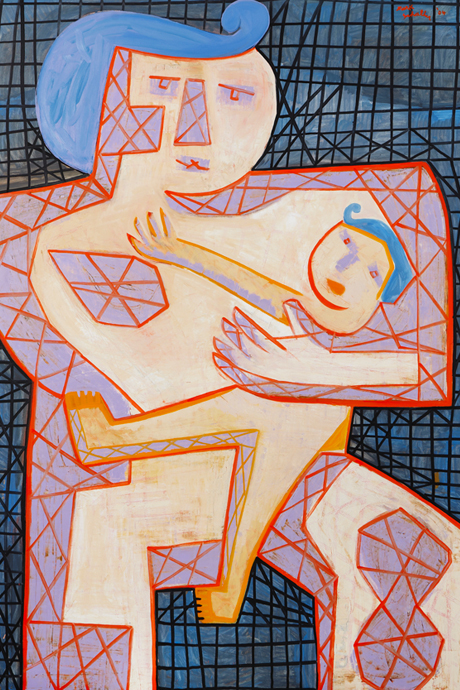We all become upset, sad or ‘down’ at different times in our lives, usually due to an event or circumstance which we find challenging, such as bereavement, relationship troubles or financial difficulties.
However, these feelings usually subside over time, as we learn to cope and live with them, or resolve the situation in one-way or another.
Pregnancy and motherhood are certainly one of these life-changing challenges. Depression, unlike temporary difficulties, can be long lasting, intense and often without an obvious cause.
Depression affects us physically, emotionally and cognitively and impacts detrimentally on our normal functioning in everyday life.
Depression is both a serious and common illness, affecting approximately 1 in 5 people at some time during their lifetime.
Over the years, health professionals and other bodies of evidence have focused on postnatal depression, where the many stressors of motherhood trigger an onset of depression.
However, the most recent evidence suggests that antenatal depression is also common, and that postnatal depression often begins during the antenatal period, continuing on into early motherhood.
Women who have previously experienced depression in their lives may also be more likely to have an onset during pregnancy, or in the postnatal period.
The impact of the pregnancy, related health concerns and other related life stressors associated with changes occurring may influence a re-lapse.
This is particularly common when women who have been taking anti-depressants cease medication on confirmation of their pregnancy.
Evidence suggests that women face numerous barriers when accessing relevant support and services for depression.
One such barrier is the stigma attached to postnatal depression, whereby women feel as though they are poor or failing mothers because they are experiencing depressive emotions surrounding their baby.
It may be hard to realise that it is a condition, rather than a failing as a mother.
It is also hard for women to distinguish between normal feelings of adjusting to pregnancy or motherhood, and being depressed. The many phases from pre-pregnancy through to motherhood are undoubtedly associated with a concoction of feelings.
These may include anxiety, excitement, fear, bewilderment and joy. In addition to these, are many life changes such as a lack of sleep, breastfeeding, hormonal fluctuations, ceasing work and possible feelings of isolation. These all contribute to what is often called ‘the baby blues’.
These feelings are common, ‘normal’ and are experienced by most mothers at some point. It is important to differentiate between this, and depression. If you are unsure you should seek help from Dr Morris or another health professional.
The Edinburgh Postnatal Depression Scale (EPDS Test) is a set of questions designed to tell you whether you have symptoms common to women experiencing depression during pregnancy and in the first year following pregnancy.
Please note that the EPDS is not designed as a prognosis tool, you should speak with Dr Morris, or another trained health care professional regarding diagnosis of depression.
Dr Morris and the midwives welcome discussions surrounding depression during your consultations and can link you in with appropriate support as required.
Contact numbers and websites for helpful information and support.
Gidget House: www.gidgetfoundation.com.au
For bookings and further information contact Jane Holmberg, the House Manager on 9460 1550.
PANDA: Postnatal and Antenatal Depression Association, www.panda.org.au Ph: 1300 726 306
Beyond Blue: www.beyondblue.org.au Ph: 1300 224 636
St John of God: www.beatbabyblues.com.au

